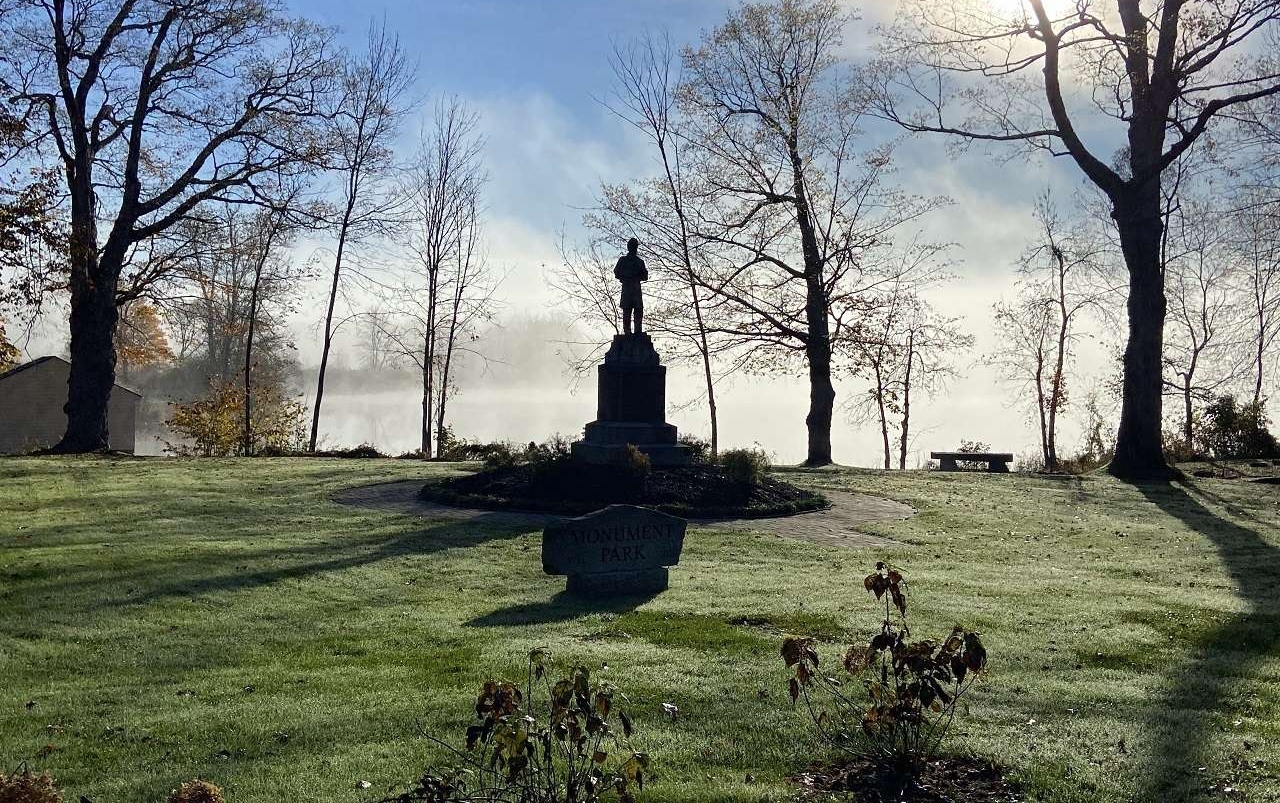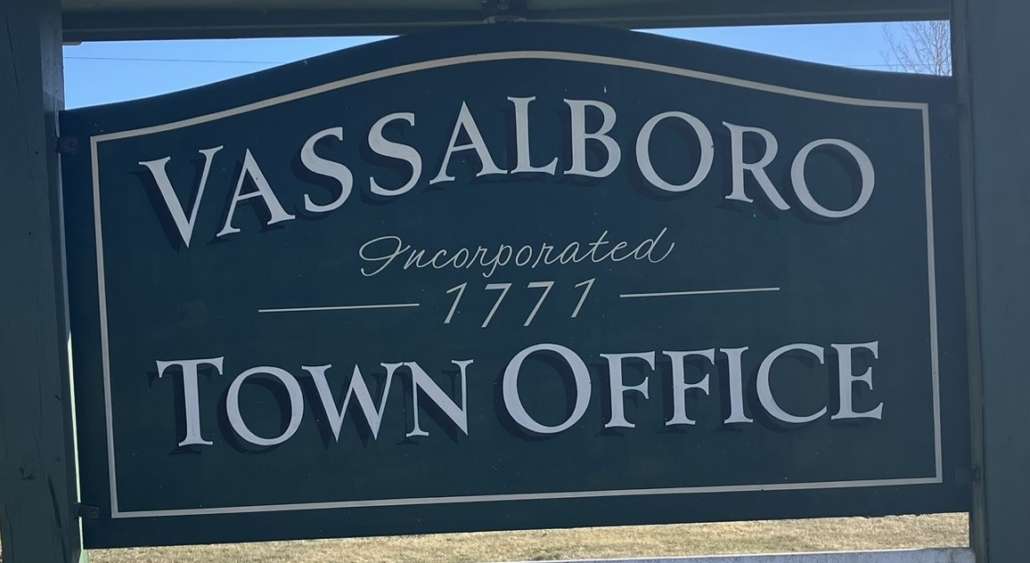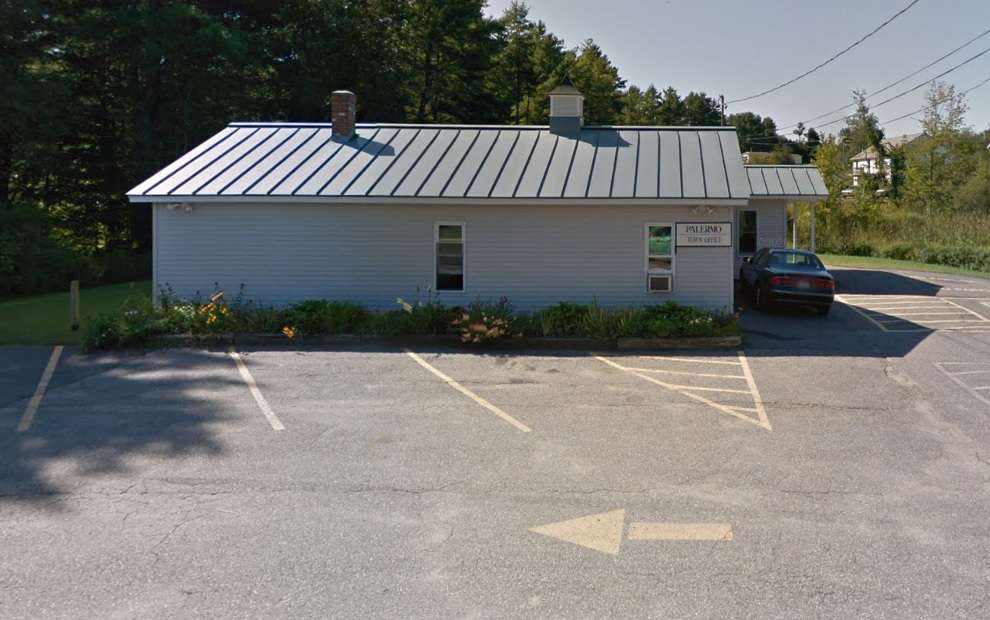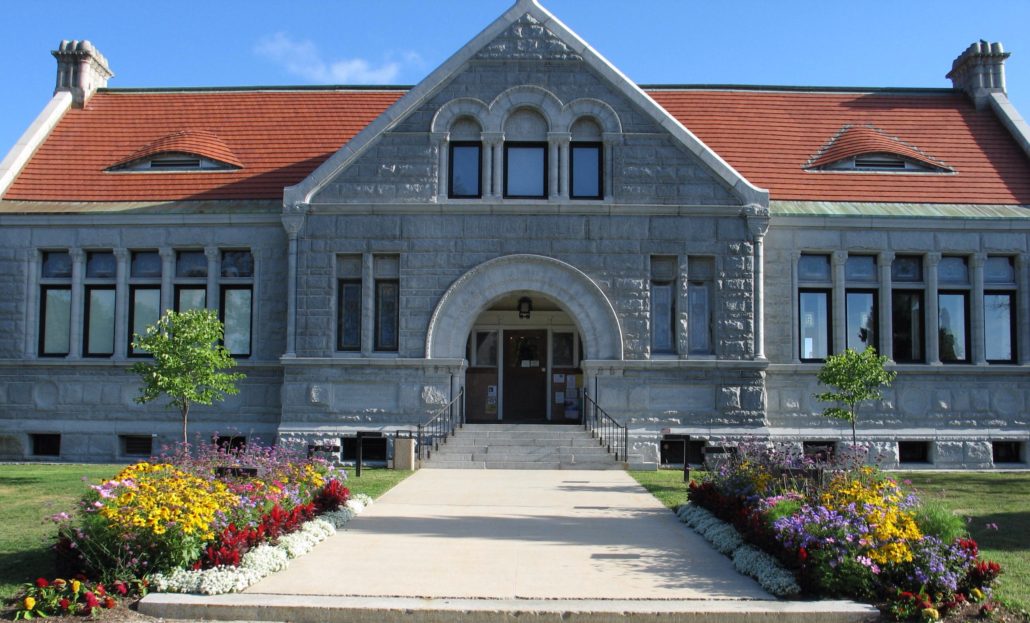VASSALBORO: Revised plan for safer transfer station facilities expected
 by Mary Grow
by Mary Grow
At their March 20 meeting, Vassalboro transfer station task force members decided on new instructions for engineer Jeff Senders that they expect will give them a revised plan for a safer facility.
The group, with select board members and transfer station staff, have talked for several years about redesigning the Lombard Dam Road facility to eliminate the need for residents to back up to a hopper to dispose of trash.
An earlier design that included a drive-through building has been replaced by a simpler idea, providing covered hoppers that residents can drive alongside. Other proposed improvements include covering all waste containers against rain and snow; minimizing two-way traffic; and, if station manager Adam Daoust has his preference, putting cement pads as bases wherever any form of disposables is stored.
Daoust and task force members discussed installing scales, to weigh things like demolition debris. Currently, according to the town website, disposal of demolition debris requires a demolition permit from the transfer station, with fees based on volume.
Earlier recommended improvements were designed by Waterville-based A. E. Hodsdon engineers. In November 2023, Vassalboro select board members sought bids to build a 60-by-80-foot Hodsdon-designed metal building at the transfer station.
Receiving only one bid, from SENDERS science, engineering and construction in Camden, they postponed action. Company head Jeff Sanders visited the facility in January 2024; at a Jan. 25 meeting, select board members contracted with the company to redesign the facility, help seek grants to fund the work and get required permits.
By November 2024, Senders had submitted three versions of a plan, each with a roofed, open-ended drive-through area and separate entrances from and exits onto Lombard Dam Road. New station manager Adam Daoust told select board members at a Nov. 13 meeting the plan seemed overly complicated; he recommended adding covers over two hoppers and leaving the two-way driveway.
Meanwhile, the town had foreclosed on a property adjoining the transfer station on the east, opening the possibility of buying land for a future expansion. This possibility is complicated by a woods road running off Lombard Dam Road, which may or may not have a legal right-of-way, and by wetlands and a small stream on the property.
Town Manager Aaron Miller has had the adjacent property surveyed. At the March 20 task force meeting he said he had hired an appraiser to value it.
Under current state law on foreclosed properties, the town is allowed to recoup all costs associated with the property before paying the heirs what is left of the appraised value – or, perhaps, buying some land from them.
Before the meeting, task force member Douglas Phillips had visited China’s transfer station. He approved of the small drive-by bins provided for residents with only a few bags of trash and recommended Vassalboro find space for similar bins, if emptying them frequently will not be too much extra work for Daoust and his assistant.
Phillips said China staff use a forklift to empty the bins; the Vassalboro facility doesn’t have one. No one knew whether all available types of small bins require a forklift.
Task force members and Daoust came up with a list of what they want Senders to include in a revised plan. They asked for three options, as with the previous Senders plan.
The next task force meeting will be scheduled after Miller finds out how much time Senders needs to provide the requested plans.








 Select board approves project
Select board approves project
